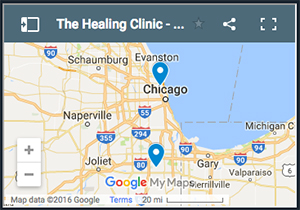Can medical cannabis help cure addiction?
We’ve all heard the arguments that marijuana is an addictive recreational drug. Based on this claim, the federal government classifies marijuana as a Schedule 1 Controlled Substance – right up there with cocaine and heroin. But, could they have it completely wrong? Could medical cannabis actually offer help for those struggling with addiction?
Currently, in Illinois, drug addiction is not listed among the “Debilitating Conditions” covered by the state’s “Compassionate Use of Medical Cannabis Pilot Program Act.” For those who believe the current list of ‘Debilitating Conditions’ has missed something, there is a petition process to add a debilitating condition to Illinois’ list.
Considering the length of the list of “Debilitating Conditions” where patients are helped by using medical cannabis, few can argue with the potential and dramatic benefits of the drug. But, the idea that cannabis can also help addicts kick their habits has generally languished in uncharted territory. There are those, however, who believe medical cannabis may offer a solution for drug addiction.
Those struggling with addiction face challenges when trying to function in society and in their own lives. Their addiction, which Merriam-Webster’s Dictionary describes as “a compulsive need for and use of a habit-forming substance,” can lead addicts to make decisions that are contrary to their best interests. An addict may struggle with financial difficulties brought on by the high cost of their addiction and the drug’s interference with their ability to stay gainfully employed. Their relationships with others are often strained.
One of the biggest arguments against the legalization of medical cannabis is the claim that it is addictive. Therefore, it seems counter logical to suggest that medical cannabis may actually offer a cure for addiction or, at least, offer help for those who are struggling with addiction. But, studies have suggested that is precisely the case.
A 2007 study in the Harm Reduction Journal suggests that patients using medical cannabis are less likely to use tobacco or heavier drugs. In 2009, the Harm Reduction Journal published another study where 57.4 percent of users of cannabis claimed that it calmed their cravings for alcohol.
A 2009 issue of Science News carried a study by the Laboratory for Physiopathology of the Diseases of the Central Nervous System. That study found that injections of THC, an active compound found in most strains of cannabis, eliminated dependence on drugs, such as heroin and morphine, in animals.
In 2013, the US National Library of Medicine National Institutes of Health published a study that claims “cannabidiol inhibited the reward-facilitating effect of morphine … in rats” though not cocaine. And, a 2017 article in Clinical Psychology Review suggests that medical cannabis can help addicts to overcome addiction and side effects from other drugs.
While the jury may still be out on the question of the ability of medical cannabis to help those with drug addictions, the potential benefits are so dramatic that pursuing this idea further clearly makes sense. The only question is whether the stigma of marijuana will stand in the way.




